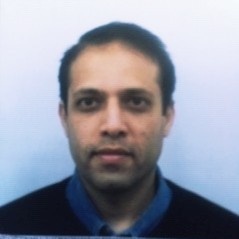Aug '24 • 🧑🏻💻 CO-WORK SPACE
One more Industry that will disappear with AI
The article below illustrates that it is not only the individual workers that need to adapt to AI. Some entire industries will be 100% transformed by AI and many companies wiped out. Maybe sooner than we imagine.
AI is about to blow up the $3 billion college application industry — San Francisco Chronicle
BIZ+TECH
AI is about to blow up the $3 billion college application industry
Tech startups are helping students navigate school selection and improve their applications with artificial intelligence.
A young man approached a youthful group visiting Stanford University the other day and said his company uses artificial intelligence to help students apply to college. Were they interested?
“Whooo!” a girl responded. “Yes!” enthused her friends.
Reporter’s notebook: How AI helped steer my virtual application to Princeton
The high school seniors knew that applying to college would be stressful. It’s not just the complex dance of choosing schools, tracking deadlines and writing the dreaded personal essay. Applying meant selling themselves — with no grammar mistakes — to admissions officers already bored by a thousand pitches just like theirs.
Kids need so much hand-holding that families who can afford it often pay tens of thousands of dollars to consultants who guide them through the application maze and coach them on fine-tuning their essays.
But AI is about to blow up the $3 billion college coaching industry and make it possible for students of all backgrounds to access the kind of expertise that, until this year, only money — lots of it — could buy, said Senan Khawaja, the young man who showed up on the Stanford campus last month to drum up business for his new AI-driven coaching company, Kollegio.
The students eagerly snapped photos of the brochure touting Kollegio as their “personal college admissions counselor.” Khawaja made sure they saw the part that said “100% free,” as the group’s leader whisked them away.
Khawaja, the company’s chief executive, graduated from Stanford in June. Chief technology officer Saeed Naeem graduated from UC Berkeley last year. The co-founders are 22 years old.
Their “platform,” as they call it, helps applicants finalize their preferred list of universities and uses artificial intelligence to help students prioritize extra-curricular activities and track a multitude of deadlines. It also uses generative AI — which can produce new content after being fed large amounts of data — to guide students through essay writing: helping them brainstorm topics, creating outlines for them, and reviewing drafts.
“We’re trying to emulate the counselor sitting there with you. And we’re giving it away for free,” said Khawaja, who has cash from investors and computing power from Stanford — but still has to figure out how to monetize the business so it’s accessible to users “whether their parents earn $50,000 or $500,000.”
Khawaja also raised the issue of cheating, a growing concern as AI has made it possible for students to get machines to do their work for them.
“We’ll never rewrite your essay for you,” said Khawaja of Kollegio. “It might suggest that the student put in some examples — but it will never auto-generate for you. It’s important to us to be ethical.”
He and Naeem aren’t the only brainy new graduates to start companies using AI to harness admissions data — the same data that human consultants rely on to help students narrow college choices and tailor applications to specific campuses.
Another is Ryusei Best Hayashi, chief executive and founder of Reach Best, which bills itself as “AI for students: the best way to research and apply to universities confidently.”
Best Hayashi is 21 and graduated from UC Berkeley in May. Reach Best has similar bells and whistles to Kollegio but also includes essays from successful applicants — provided by friends of Best Hayashi — that can guide customers.
The platform reviews applicants’ essays but can’t write them, he said. Would it be ethical to do so?
“It’s a tricky question,” he said. “The de facto answer is no, you should write your own. We’ve been thinking about this a lot.”
He likened the situation to politicians who have speech writers, yet claim authorship.
“The key challenge is, to what extent is AI writing what you want it to say?” he said.
RELATED:
Reach Best went live in June and charges customers $25 to $200, depending on how many essay reviews and AI queries they want. Yet most of the 10,000 users Best Hayashi has collected since he began beta testing in 2022 use the site’s free try-out section, he said.
Free competitor Kollegio went live on Thursday.
Students entering college this fall are the first to complete a full application cycle since generative AI tools like ChatGPT emerged in late 2022, and signs indicate they are already jumping on the technology.
For the first time, the University of California’s “statement of application integrity” contains a surprising message for all 250,000 applicants: When answering application questions, using generative AI for advice on content, editing and readability is fine.
“But content and final written text must be their own,” UC warns for the first time, noting that it screens responses and may ask applicants to prove they created the content themselves. If it detects cheating, UC “will take action.”
About a third of 523 teens surveyed nationwide said they used AI to help them with the personal essays in their college application, according to foundry10, an education research group in Seattle that asked 16- to 18-year-old applicants about their AI habits in February and March.
Of the 153 students who used AI, half said it helped with brainstorming essay topics, checking grammar and creating an outline. About a third used AI to “enhance essay content phrasing.”
More troubling is that 49 of the respondents, or 32%, used the tool to generate a first draft of their essays. And 31 of them, 20%, used it to write their final essay.
Rather than condemn the students for cheating, Jennifer Rubin, the report’s lead author, said the findings show that education leaders need to develop guidelines and “safeguards” around AI.
“It is crucial that we navigate this shift with care to ensure that these tools are used ethically and effectively,” Rubin said.
UC, for example, is requiring applicants to click on its application integrity statement, generating a signature that affirms, for the first time, that they won’t use AI to cheat. It remains unclear, however, if that is enough.
Meanwhile, companies like Reach Best and Kollegio are rising in popularity.
One enthusiastic user is Shrishti Harish, who at 14 hasn’t yet started her sophomore year at Mountain House High School in San Joaquin County.
She wants to be a surgical oncologist and major in biomedical science. Thanks to her Instagram feed, she’s all over companies that use AI to steer her in the right direction.
“I’m planning on using it for the rest of my high school career,” said Shrishti, who appreciates different strengths of the companies she has tried: Reach Best, Kollegio and another called AdmitYogi.
It’s too early for Shrishti to write a personal essay for college. But she learned from Kollegio that her extracurricular activities — singing karnatic music and dancing bharatnatyam, both classical Indian art forms — should take center stage on her eventual application. It was the AI that suggested she highlight skills beyond the science competitions typical of applicants in her field.
“I think AI will be a huge resource for incoming high school students,” she said. “You can get motivated and inspired. So it’s a really important tool.”
Shrishti said she doesn’t believe her parents, who are engineers, will hire a college admissions coach for her.
Would she prefer one?
“Definitely. Because you can actually foster a connection,” she said. “This is all AI. You can’t really talk to them like they’re a human.”
Bryan Contreras understands this. He’s a managing director with Matriculate, a nonprofit that connects thousands of high-achieving, low-income high school students virtually with college students — including at Stanford and UC Berkeley — who serve as amateur admissions advisers.
Many of the teens come from single-parent families and are the first in their family to apply to college.
“For some students, this process is as foreign as anything they’ve experienced,” Contreras said. “They are shouldering it alone, and to leave that to a machine or app is not a very caring approach.”
And yet … Contreras likes AI.
He met Best Hayashi at a counseling conference in Kansas City, Mo., and took his business card.
Contreras said he can imagine AI helping the amateur advisers who work with Matriculate to summarize their counseling sessions with teens, suggest questions, and organize the “information overload.”
“We need the tools,” he said. “We need to introduce generative AI and AI to the process.”
3
1 comment

skool.com/ai-mba-4998
Use AI to finish a 40-hour week's work in just 4 hours. Then build your AI empire to the BILLIONS with Systems: Workflows, Automation, & No code
Powered by





